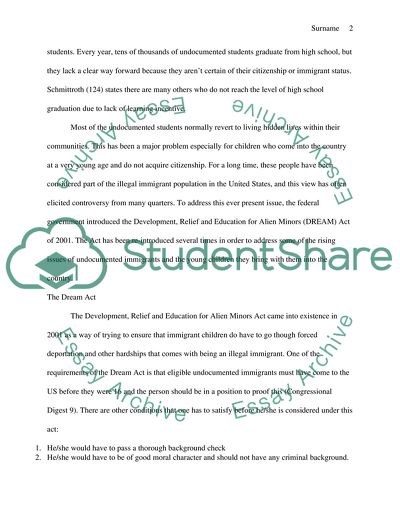Cite this document
(Dreamers of Undocumented Immigrants Term Paper Example | Topics and Well Written Essays - 2500 words, n.d.)
Dreamers of Undocumented Immigrants Term Paper Example | Topics and Well Written Essays - 2500 words. Retrieved from https://studentshare.org/social-science/1755860-dream-act-argumentative-essay-dreamers-of-undocumented-immigrants
Dreamers of Undocumented Immigrants Term Paper Example | Topics and Well Written Essays - 2500 words. Retrieved from https://studentshare.org/social-science/1755860-dream-act-argumentative-essay-dreamers-of-undocumented-immigrants
(Dreamers of Undocumented Immigrants Term Paper Example | Topics and Well Written Essays - 2500 Words)
Dreamers of Undocumented Immigrants Term Paper Example | Topics and Well Written Essays - 2500 Words. https://studentshare.org/social-science/1755860-dream-act-argumentative-essay-dreamers-of-undocumented-immigrants.
Dreamers of Undocumented Immigrants Term Paper Example | Topics and Well Written Essays - 2500 Words. https://studentshare.org/social-science/1755860-dream-act-argumentative-essay-dreamers-of-undocumented-immigrants.
“Dreamers of Undocumented Immigrants Term Paper Example | Topics and Well Written Essays - 2500 Words”, n.d. https://studentshare.org/social-science/1755860-dream-act-argumentative-essay-dreamers-of-undocumented-immigrants.


